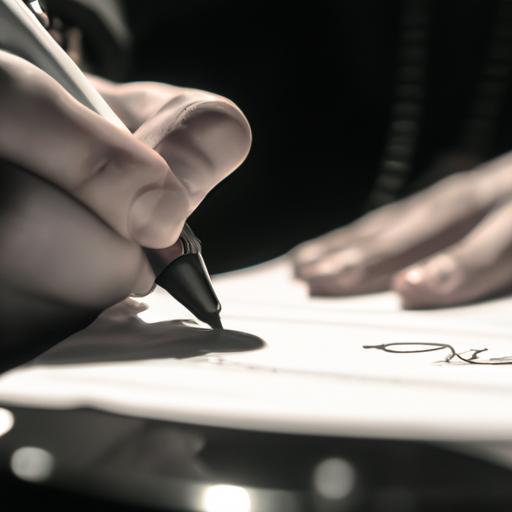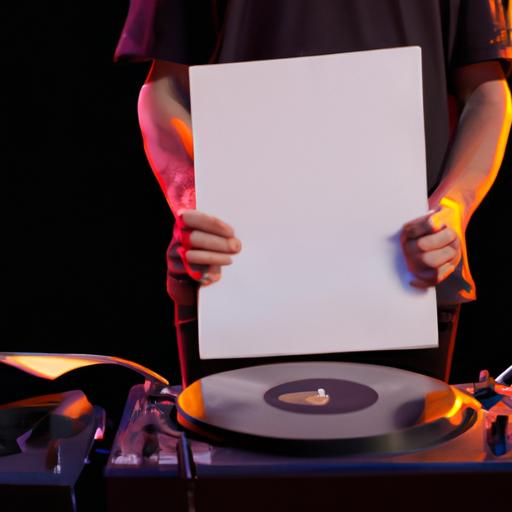DJ Reader Contract: Safeguarding Your Creative Rights
As a DJ, you’ve dedicated endless hours perfecting your skills and cultivating your distinctive sound. You’ve invested in top-notch equipment, curated killer playlists, and developed a loyal fan base. But have you taken the necessary steps to protect your intellectual property rights?
A DJ reader contract is a legally binding document that defines the terms of the agreement between you and your client. It encompasses various aspects, including the genre of music you’ll play and the fees you’ll charge. More importantly, it serves as a safeguard for your intellectual property rights.
Your music is your artistic creation, and it holds immense value. With a DJ reader contract, you ensure that you retain ownership of your music and that your client cannot utilize it without your express permission. It also guarantees that you receive proper compensation for your services and eliminates any potential misunderstandings.
In this article, we’ll delve into the significance of DJ reader contracts, the reasons why they are indispensable, and the process of crafting an effective one. We’ll also address common pitfalls to avoid and offer valuable insights for developing a robust DJ reader contract. By the end of this read, you’ll be equipped with comprehensive knowledge on safeguarding your intellectual property rights and the instrumental role that a DJ reader contract plays.
Key Elements of a DJ Reader Contract

When creating a DJ reader contract, it is crucial to include several key components to protect your rights and prevent any misunderstandings between you and your client. Let’s take a closer look at these essential elements:
Services
This section delineates the services you will provide as a DJ. It should specify the date, time, and duration of your performance, the music genres you specialize in, and any special requests or specific requirements from your client.
Fees
The fees section outlines the amount you will charge for your services. It should include the total fee, any deposit required, and the payment schedule. It is vital to be transparent about your fees to avoid disputes or misunderstandings in the future.
Intellectual Property
This section safeguards your intellectual property rights. It explicitly states that you retain ownership of your music and clarifies that your client cannot use it without obtaining your permission. Additionally, it should mention any licensing fees that your client may need to pay if they wish to utilize your music.
Liability
The liability section clearly defines the responsibilities of both parties in case of accidents or damages during your performance. It is crucial to establish a concise liability clause to mitigate any potential legal issues.
Termination
The termination section outlines the procedures for either party to terminate the agreement. It should include the notice period required and any penalties or fees that may be applicable in such cases.
Governing Law
The governing law section specifies the laws that govern the contract. Clear articulation of the governing law eliminates potential legal disputes down the line.
By incorporating these key elements into your DJ reader contract, you can safeguard your intellectual property rights, ensure fair compensation, and maintain a harmonious relationship with your clients.
Why a DJ Reader Contract is Indispensable
While protecting your intellectual property rights is indeed a primary objective of a DJ reader contract, there are several other reasons why it is crucial. Let’s explore some of these rationales:
Safeguarding the DJ’s Intellectual Property
Your music is a product of your creativity, and you have the right to protect it. A DJ reader contract ensures that you retain ownership of your music and that your client cannot use it without obtaining your permission. This includes not only the music you play but also any remixes or original tracks you create.
Preventing Misunderstandings between the DJ and Client
A DJ reader contract establishes clear terms of agreement between you and your client. It covers various aspects, including the type of music you’ll play and the fee you’ll charge. By having a well-defined contract in place, you can prevent misunderstandings and disagreements in the future.
Ensuring Payment for DJ Services
One of the critical aspects of a DJ reader contract is ensuring proper remuneration for your services. The contract should outline the fees you’ll charge, the payment schedule, and the consequences of late or non-payment. By having a contract in place, you protect yourself from clients who may attempt to negotiate lower fees after the fact or fail to remunerate you appropriately.
In summary, a DJ reader contract is necessary to safeguard your intellectual property, prevent misunderstandings, and ensure fair compensation for your services. It is an indispensable document that every DJ should have before accepting any gigs.
Crafting an Effective DJ Reader Contract
Creating a DJ reader contract is an integral part of protecting your intellectual property rights and ensuring you receive proper compensation for your services. Here are some valuable tips for developing a robust DJ reader contract:
Tips for Creating a DJ Reader Contract
-
Be Specific: Your contract should clearly specify the music genres you specialize in, the duration of your sets, and the fees you charge. Include details about any specific equipment requirements or unique requests from your clients.
-
Use Clear Language: Write your contract using concise and easily understandable language. Avoid legal jargon and complicated terminology to ensure both you and your client comprehend the terms clearly.
-
Include a Cancellation Policy: Your contract should outline the procedures and fees associated with event cancellations. Clearly state any charges that will apply in case of cancellations.
-
Outline a Payment Schedule: Your contract should mention when and how you will receive payment, including any deposits or upfront fees required.
Important Considerations when Drafting a Contract
-
Consult with an Attorney: If you have any doubts or concerns regarding your contract, it is advisable to seek legal advice from an attorney. They can help address potential legal issues and ensure your contract is legally binding.
-
Customize your Contract: Avoid using generic contracts found online. Instead, tailor the contract to your specific needs and the requirements of your business.
-
Ensure a Written Agreement: Your contract must be in writing and signed by both you and your client. This ensures clarity and awareness of the terms of the agreement for both parties involved.
By following these tips and considerations, you can create a strong DJ reader contract that protects your intellectual property rights and ensures fair compensation for your services.
Common Mistakes to Avoid
When creating a DJ reader contract, it is essential to avoid common mistakes that may jeopardize your intellectual property rights or result in inadequate compensation. Here are some common errors to be mindful of:
Common Mistakes in DJ Reader Contracts
-
Lack of Specificity: Failing to provide precise details regarding the services you will provide, such as music genres, equipment requirements, and fees, can lead to misunderstandings in the future.
-
Failure to Protect Intellectual Property: Neglecting to include clauses that explicitly protect your intellectual property rights can result in unauthorized usage of your music. Ensure your contract addresses this aspect and outlines the consequences of violating these rights.
-
Absence of a Clear Payment Structure: A poorly defined payment structure can lead to disputes or non-payment. Clearly articulate when and how you expect to be paid, including any required deposits or upfront fees.
How to Avoid These Mistakes
To avoid these common mistakes, it is vital to be thorough when crafting your DJ reader contract. Carefully consider the services you will provide and how you wish to be compensated for them. Incorporate specific clauses that protect your intellectual property rights and establish a transparent payment structure.
Seeking legal advice from an attorney before implementing your contract is also recommended. They can help identify any potential issues and ensure your contract is legally sound.
By avoiding these pitfalls and creating a robust DJ reader contract, you can safeguard your intellectual property rights and ensure appropriate compensation for your services.
Conclusion
In conclusion, a DJ reader contract is an indispensable document for protecting your intellectual property rights and guaranteeing fair compensation for your services. It establishes clear terms of agreement and mitigates misunderstandings.
Creating a strong DJ reader contract requires attention to detail and a comprehensive understanding of its key components. You must be explicit about the music genres you specialize in, the fees you charge, and the ownership of your music.
By following the tips provided in this article and avoiding common mistakes, you can create a sturdy DJ reader contract that safeguards your intellectual property rights and ensures your hard work and talent are duly compensated.
Remember, your music is your intellectual property, and it holds significant value. A DJ reader contract is your strongest ally in protecting it and securing your rightful compensation. Don’t leave anything to chance. Create a DJ reader contract for every event you perform at, and safeguard your intellectual property rights.

